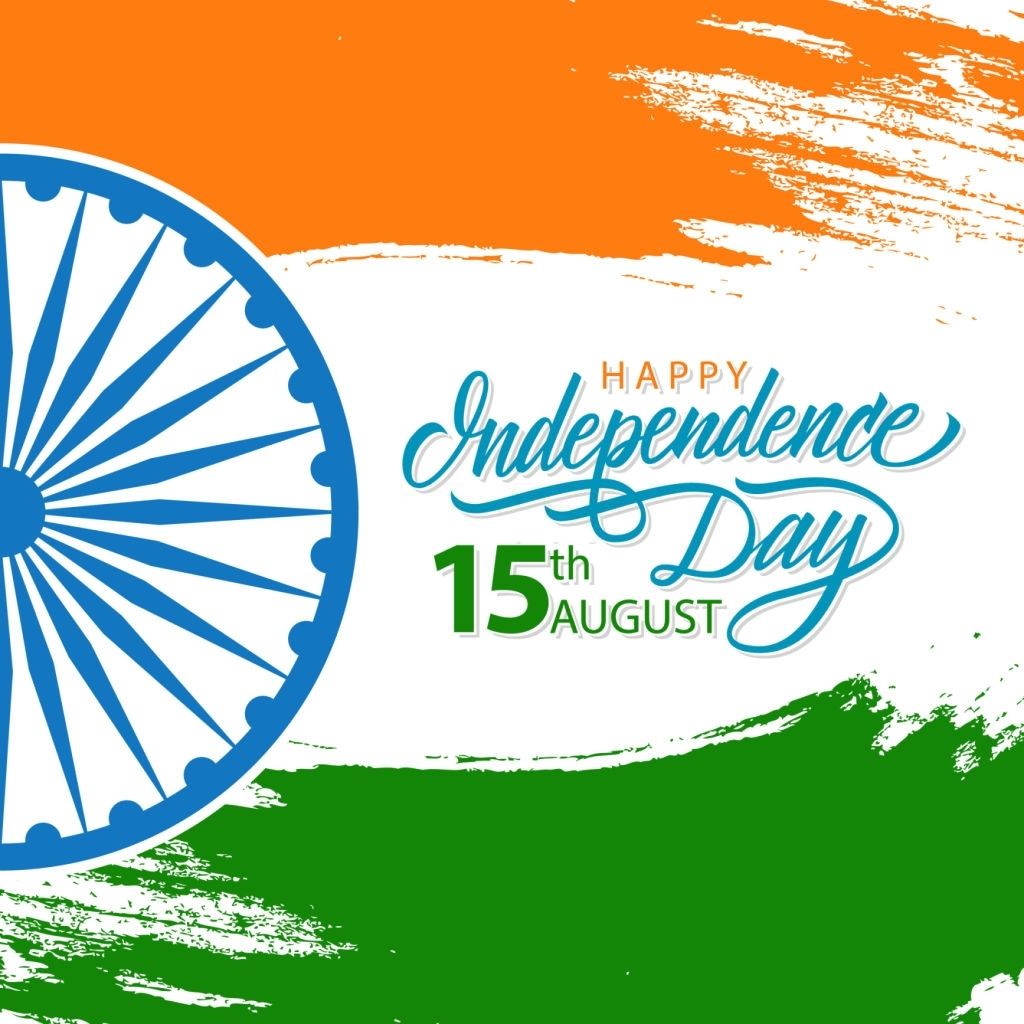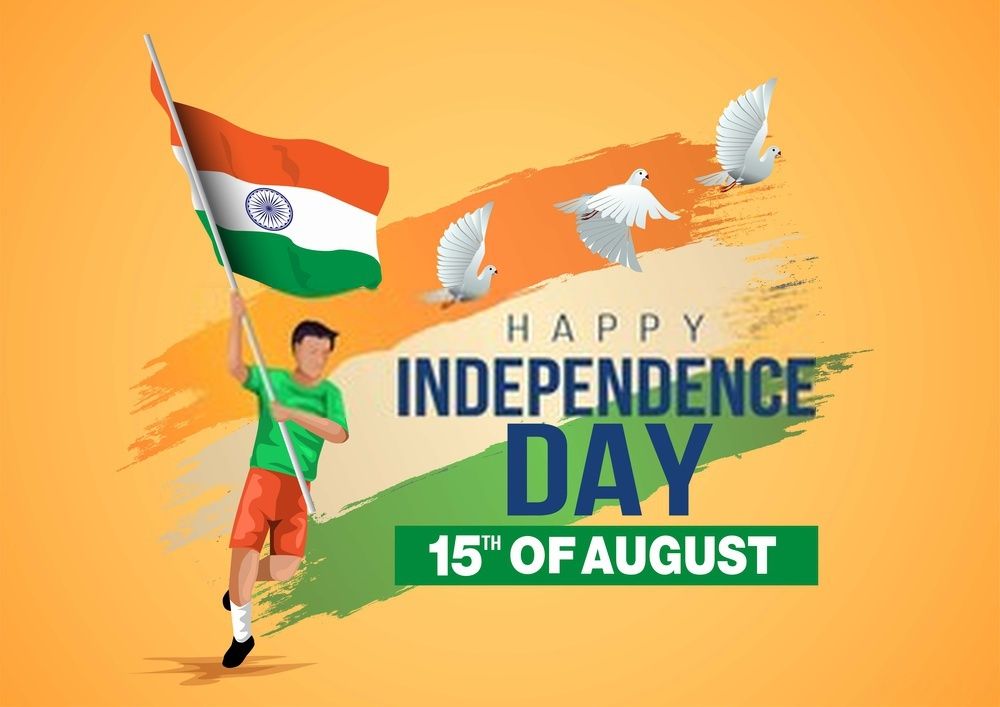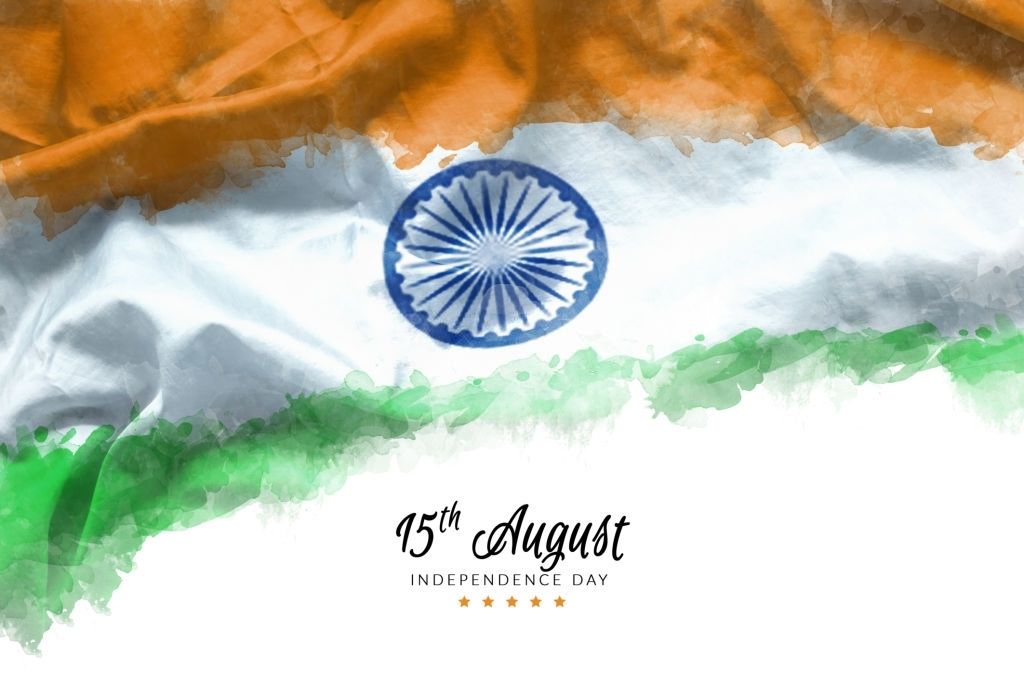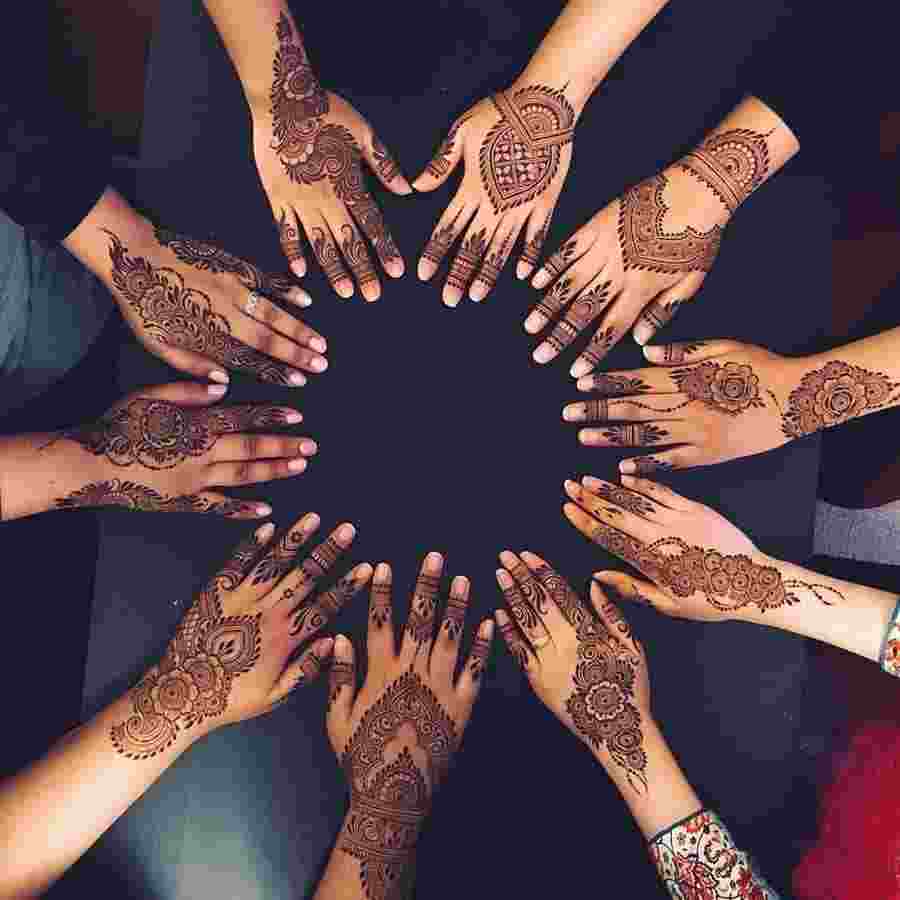Independence Day is obviously a special day for every country. In terms of the total number of people in a country, India is one of the biggest countries in the world. Happy Independence Day India brings a great moment for every people in India. Almost everyone willingly participates in the celebration ceremony and spend a very busy day having a lot of fun and enjoyment. In this article, we are going to discuss some important facts about the independence day of India.
Happy Independence Day India Date
The date of happy Independence Day India is on 15th August every year. India got its independence on this day in 1947. India is celebrating its 76th independence this year. The country got independence by breaking the shackles of oppression and deprivation. Before gaining independence, India was under the rule by the British Empire.
Read more: 77th Happy India Independence Day Wishes with Images

History of Independence Day of India
Independence Day in India is celebrated on August 15th every year to commemorate the country’s freedom from British colonial rule. The history of this significant day is rooted in India’s struggle for independence, which was marked by various movements and events. Here’s a brief overview of the history of Independence Day in India:
- British Colonial Rule: India was under British colonial rule for nearly 200 years, from the early 17th century until the mid-20th century. The British East India Company gradually gained control over various parts of India, and by the mid-19th century, India had become the “Jewel in the Crown” of the British Empire.
- Indian National Movement: The late 19th and early 20th centuries saw the rise of a strong nationalistic movement in India. Leaders like Mahatma Gandhi, Jawaharlal Nehru, Subhas Chandra Bose, and many others played pivotal roles in advocating for India’s independence through nonviolent civil disobedience, protests, and various campaigns.
- World War I and II: The two World Wars had a significant impact on India’s struggle for independence. The contributions made by Indian soldiers and the economic hardships faced during these wars intensified the demand for self-governance and increased the momentum of the freedom movement.
- Quit India Movement: In 1942, during World War II, Mahatma Gandhi launched the Quit India Movement, urging the British to leave India immediately. This movement marked a turning point in India’s fight for freedom, as it saw widespread mass protests and civil disobedience.
- Mountbatten Plan and Partition: In 1947, the British government, led by Lord Louis Mountbatten, proposed a plan for the partition of India into two separate nations: India and Pakistan. The Indian Independence Act was passed by the British Parliament, leading to the creation of these two nations on August 15, 1947.
- Independence Day: On the midnight of August 15, 1947, India’s first Prime Minister, Jawaharlal Nehru, hoisted the national flag at the Red Fort in Delhi, marking the end of British colonial rule and the beginning of a new era of independence for India.
- Celebrations: Since that historic day, Independence Day is celebrated annually throughout India with great enthusiasm. The main event takes place at the Red Fort, where the Prime Minister hoists the national flag and delivers a speech. Parades, cultural performances, flag hoisting ceremonies, and patriotic fervor characterize the day’s celebrations across the country.
Independence Day in India holds immense significance as it symbolizes the triumph of India’s struggle for freedom and the birth of a sovereign nation. It serves as a reminder of the sacrifices made by countless individuals in the pursuit of liberty and justice.
Independence Day of India: Significance
Independence Day of India holds immense significance as it commemorates the country’s hard-fought struggle for freedom from British colonial rule. This day represents a pivotal moment in India’s history and carries several important meanings:
- National Pride and Identity: Independence Day is a day of national pride and unity. It signifies the collective strength and resilience of the Indian people who came together to overthrow colonial rule and establish their own identity as a sovereign nation.
- Freedom and Self-Governance: The most fundamental significance of Independence Day is the achievement of freedom. India gained the ability to make its own decisions, shape its destiny, and govern itself without external control. This freedom is the cornerstone of the nation’s progress and development.
- Sacrifice and Struggle: Independence was not handed over; it was achieved through the sacrifices, struggles, and dedication of countless individuals who fought against oppression and injustice. Independence Day honors the memory of those who gave their lives for the cause of freedom.
- Unity in Diversity: India is known for its rich cultural, linguistic, and religious diversity. Independence Day serves as a reminder that despite these diversities, the people of India stand united in their aspirations for a better future and a stronger nation.
- Democracy and Values: The establishment of an independent India paved the way for a democratic system of governance. Independence Day is a celebration of democratic values, emphasizing the importance of equality, justice, and the rule of law.
- International Solidarity: India’s struggle for independence inspired other nations in their quests for freedom. The success of the nonviolent movement led by figures like Mahatma Gandhi had a profound impact on global perceptions of peaceful resistance.
- Renewal of Commitment: Independence Day is not just about looking back; it’s also about looking forward. It’s a day to renew the commitment to uphold the principles of freedom, democracy, and social justice that the country was founded upon.
- Cultural Celebrations: The day is marked by various cultural events, parades, flag hoisting ceremonies, and patriotic songs. These celebrations promote a sense of patriotism and remind citizens of their shared heritage and values.
- Reflection and Gratitude: Independence Day provides an opportunity for reflection on the progress made since gaining freedom, as well as the challenges that lie ahead. It’s a time to express gratitude to the leaders and activists who paved the way for a free India.
- Educational Significance: Independence Day is an essential part of the curriculum in schools and educational institutions. It helps educate the younger generation about the nation’s history, the sacrifices made, and the importance of preserving freedom and unity.
In essence, Independence Day is a day of remembrance, celebration, and rededication to the ideals that underpin the nation’s foundation. It reminds Indians of their shared heritage, the value of freedom, and the responsibilities that come with self-governance.
Some Important Facts about Happy Independence Day India
India becomes the largest democratic country in the world just after gaining its independence. There are a lot of historic moments and incidents associated with Independence Day of India. Below are some of the interesting and important facts about happy Independence Day India:
- India is celebrating its 77th Independence on 15th August 2025.
- The Independence movement of India is largely noted for civil disobedience and non-violent resistance.
- The countries independence has coincided with the partition of India when India and Pakistan become two separate countries based on the religious aspect.
- Before gaining independence, India was ruled by the British Empire for 200 years.
- Some of the greatest freedom fighters are Neta Ji Subash Chandra Bose, Mahatma Gandhi, Bhagat Singh, Mangal Pandey, Rani LakshiBai, Sarojini Naidu, Chandra Shekhar Azad, Dr. Babasaheb Ambedkar, and a lot more.
Check also: Happy India Independence Day Quotes

How to Celebrate Happy Independence Day India?
People celebrate happy Independence Day India in a lot of activities. The day is mostly celebrated with a lot of patriotism by honoring all the freedom fighters and others for their sacrifices. Flag-raising ceremonies are conducted and special programs, parties, seminars, etc. are hosted all over the country on this day. In the morning on this day, the Indian Prime Minister unfurls the national flag attending a ceremony at the Red Fort monument in Old Delhi where a large number of people come together.

Read more:
Happy Independence Day India is really a day for people across the country to celebrate, have a party, arrange a feast, and gather knowledge on this day. Different states of the country remain busy through different activities to observe this greatest day.




